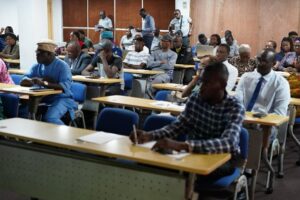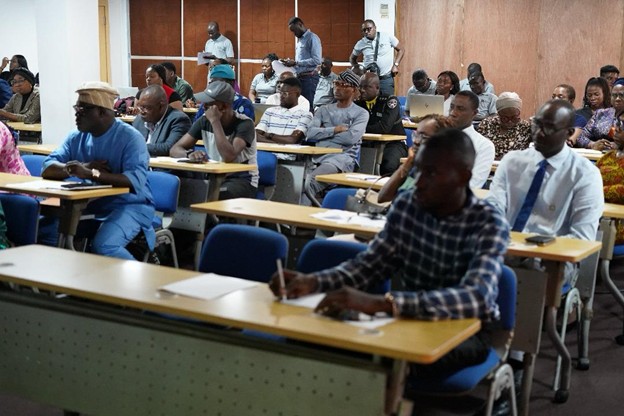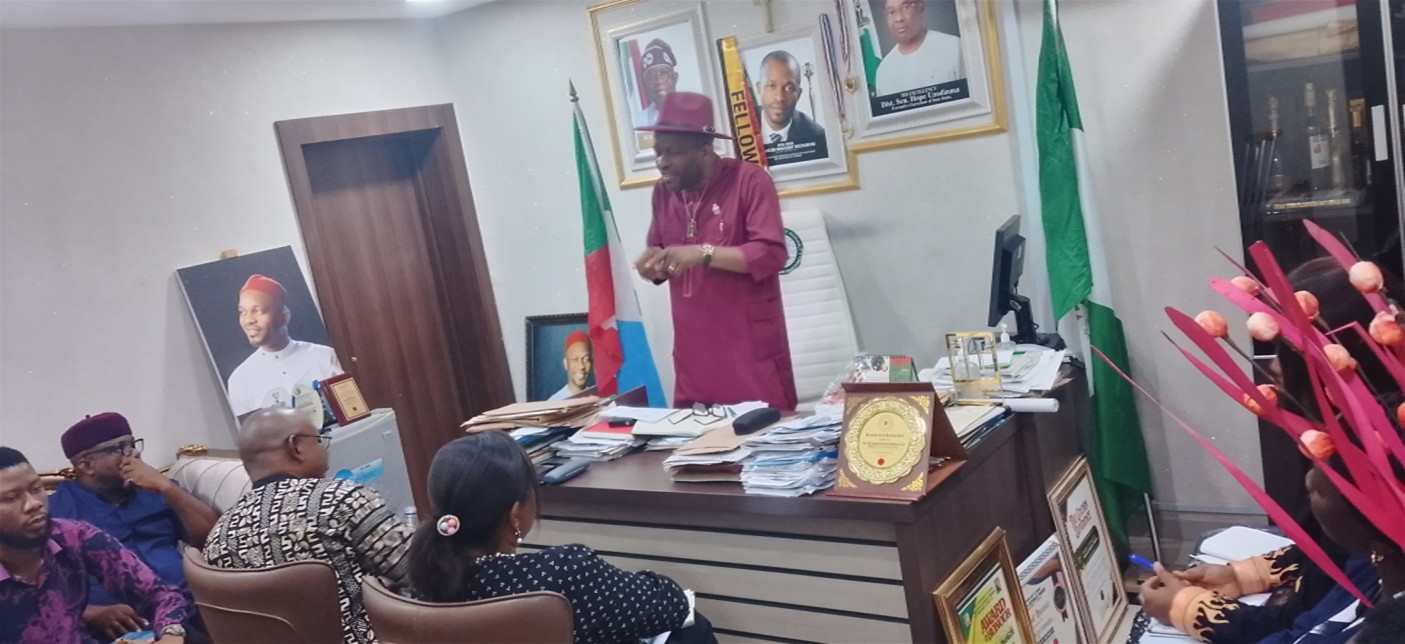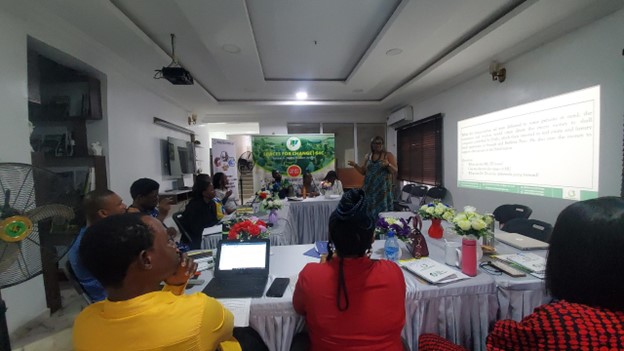Spaces for Change| S4C joined urban planners, policymakers, civil society organizations, and community representatives at the stakeholder dialogue on urban resilience organized by the Lagos State Resilience Office (LASRO)—a unit under the Lagos Ministry of Economic Planning and Budget. With a focus on reviewing the Lagos Resilience Strategy (LRS) and identifying data-driven and community-led solutions to the city’s pressing urban challenges, stakeholders identified six “Discovery Areas” for focused research and policy recommendations. Out of these six areas, “informality” stood out as a major concern, with conversations centering on how Lagos can integrate informal settlements and economic activities into its development plans rather than treating them as illegal encroachments.
The conversation kicked off with the burning question: What is informality, and how do state actors define it? This fundamental inquiry set the stage for a rich and intellectual discourse on the complexities of informality in Lagos, a city where unregistered businesses, informal housing, and unplanned economic activities sustain millions of residents. While informality is often viewed through a negative lens—associated with illegality, disorder, and non-compliance—it also represents resilience, ingenuity, and an adaptive response to the gaps in formal governance. Participants engaged in a deep exploration of how informality is framed by state actors, contrasting the top-down regulatory perspective with the lived realities of those who operate in informal spaces.
Understanding informality in Lagos requires unpacking its manifestations in housing, land use, and economic activities. It is the roadside trader navigating daily harassment while meeting local demand, the informal settlement resident innovating around service delivery gaps, and the small-scale entrepreneur creating employment without formal recognition. Despite its prevalence, informality remains largely unrecognized in urban planning frameworks, exposing millions to forced evictions and restricted access to essential services.
Participants debated the tension between regulation and inclusion, questioning whether existing legal and institutional structures acknowledge informality as a fundamental part of the city’s development or seek only to eradicate it. Addressing informality is not just about enforcement—it is about resilience. Participants highlighted that informality does not operate in isolation but is intrinsically linked to the failures of formal governance. If policies continue to criminalize informality without offering viable alternatives, displacement and economic exclusion will persist, deepening social inequalities. The discussion underscored the need to shift from a rigid regulatory approach to an inclusive policy framework that integrates informal communities into urban development plans.
One of the key proposals that emerged from this conversation is the imperative of adopting a social housing policy as a structured alternative to forced evictions and exclusion. Drawing inspiration from the Munich City Council in Germany, where at least 50% of new housing developments are allocated for social housing, Lagos could implement a policy requiring a percentage of urban housing projects to cater specifically to low-income earners and informal settlement dwellers. Under this model, the government, in partnership with private developers, can mandate that a portion of housing projects is reserved for subsidized rentals or cooperative ownership schemes. This intervention prevents mass evictions while ensuring that urban expansion does not exclusively favor high-income groups. Public-private partnerships and land-use policies can be structured to incentivize developers to contribute to social housing in exchange for tax benefits or development rights.
Another practical solution considered was the issuance of rights of occupancy by local governments as an alternative land tenure model for informal structures on legally leased land from customary overlords. This model provides tenure security for communities that have existed in social cohesion and order for an extended period. Adopting an inclusive and rights-based approach, the state government could establish a policy that formally recognizes the power of local governments to grant rights of occupancy to such communities. By doing so, residents who have secured long-term lease agreements with customary landowners would gain legal recognition without the bureaucratic hurdles associated with full land titling.
A streamlined process—free from excessive delays and high costs—would encourage more residents to formalize their tenure, reducing the risk of eviction while still respecting the traditional landholding system. The right of occupancy could also include clear guidelines, such as restrictions on sub-leasing, regulations on architectural structures, and limits on land accumulation to prevent speculative land grabbing. By embedding these provisions, the model would strike a balance between legal recognition and sustainable urban development, ensuring that informal settlements are integrated into the city’s long-term planning rather than displaced.
Beyond land rights, the meeting also addressed the challenge of data gaps in urban planning. One of the key concerns raised was the absence of reliable and disaggregated data on informal settlements, making it difficult to design responsive policies. Participants emphasized the importance of community-led data collection, where residents actively map their neighborhoods, document land tenure arrangements, and track infrastructure deficits. This grassroots-driven approach has been effective in other cities, where governments have incorporated community-generated data into formal planning processes. In Lagos, leveraging technology for real-time data gathering—such as GIS mapping and mobile survey tools—could help bridge the information gap and ensure policies reflect on-the-ground realities.
As the conversation unfolded, it became clear that informality should not be synonymous with illegality. Instead of viewing informal dwellers as encroachers, policy frameworks must recognize them as integral to Lagos’s economy and social fabric. The meeting underscored the urgency of collaboration between communities, civil society organizations, and government agencies to develop inclusive policies that protect rather than punish informal actors.
With the Lagos Resilience Strategy 2.0 in development, the hope is that these discussions will translate into concrete action, ensuring that the resilience of informal settlements is harnessed rather than hindered. Spaces for Change remains committed to advocating for innovative approaches that recognize the intersection of public, private, and community resources and energy. By championing Public-Private-People Partnerships (PPPPs), Spaces for Change will continue to push for solutions that balance urban growth with social equity, ensuring that informal communities are not left behind in Lagos’s development trajectory.























